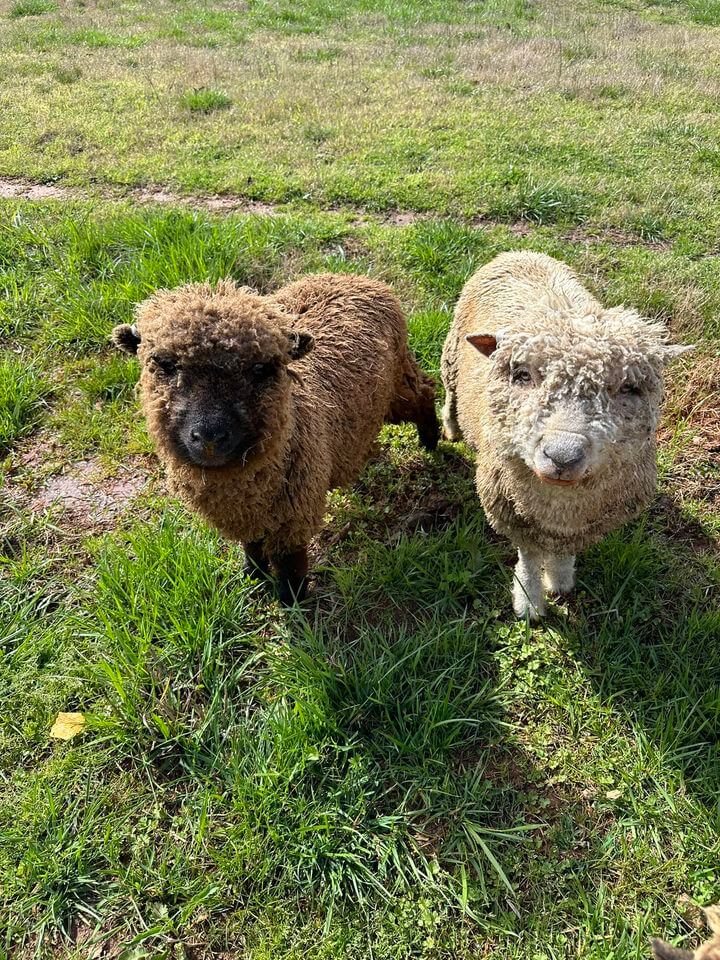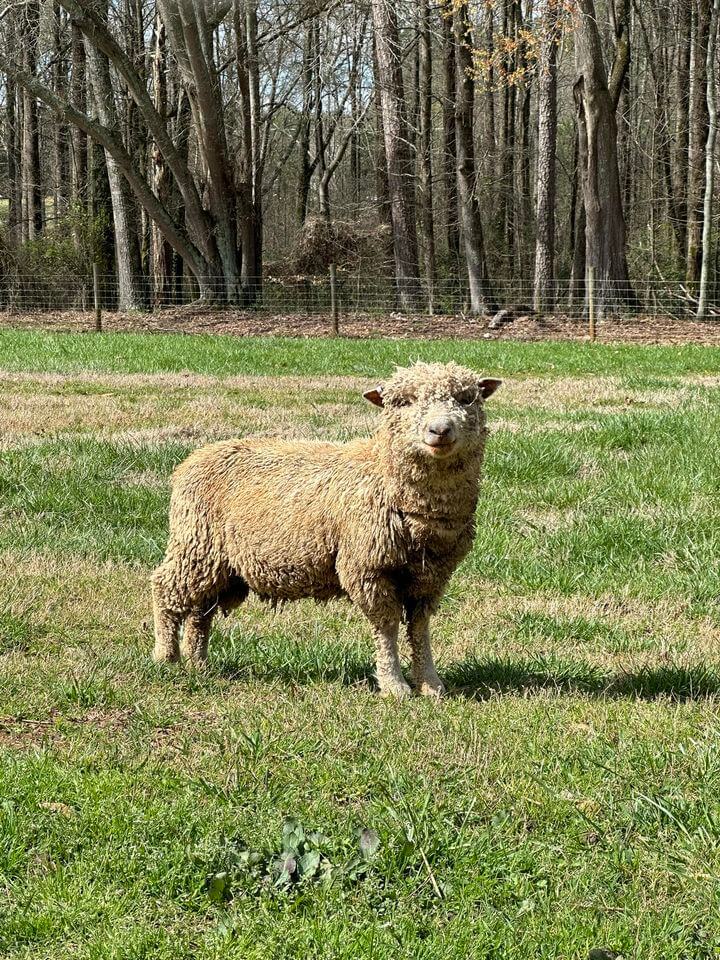English Baby doll sheep, known for their adorable appearance and gentle nature, have gained popularity among farmers and hobbyists alike. Originating from England, these diminutive sheep have distinctive features that set them apart. In this article, we’ll delve into the origins, characteristics, care requirements, breeding practices, uses, challenges, and considerations of English Baby doll sheep.
What are English Babydoll Sheep?
English Babydoll sheep, also referred to as Olde English Babydoll Southdowns, are a miniature breed of domestic sheep. They are characterized by their short legs, stocky build, and teddy bear-like faces, which contribute to their endearing appearance. These sheep typically weigh between 80 to 120 pounds and stand around 18 to 24 inches tall at the shoulder.

Origins of English Babydoll Sheep
The history of English Baby doll sheep traces back to the Southdown sheep breed, which originated in Sussex, England, during the 18th century. Selective breeding over generations led to the development of the smaller, compact variant known as the English Baby doll. They were initially bred for their high-quality meat and wool.
Characteristics and Appearance
English Baby doll sheep are known for their docile temperament, making them ideal for hobby farms and petting zoos. Their wool is fine-textured and often sought after by artisans for crafting projects. These sheep come in various colors, including white, gray, and brown, with some exhibiting spotted or speckled patterns.
Caring for English Babydoll Sheep
Housing Requirements
When housing English Baby doll sheep, it’s essential to provide adequate shelter from the elements. A sturdy barn or shed with proper ventilation and insulation is ideal. Additionally, fenced pasture or grazing areas should be available to allow for exercise and foraging.
Feeding and Nutrition
English Baby doll sheep have specific dietary needs, requiring a balanced diet rich in fiber, vitamins, and minerals. High-quality grass hay, supplemented with grains or pelleted feed formulated for sheep, can meet their nutritional requirements. Fresh water should always be accessible.
Health Considerations
Maintaining the health of English Baby doll sheep is crucial for their well-being. Regular vaccinations and deworming are essential to prevent diseases and parasites. Routine health checks by a veterinarian can help identify and address any potential issues promptly.
Breeding and Reproduction
Breeding Practices
Breeding English Baby doll sheep requires careful planning and consideration. Selecting healthy, well-conformed individuals with desirable traits is essential for producing quality offspring. Breeding should be timed to coincide with optimal reproductive conditions.
Gestation Period
The gestation period for English Baby doll sheep is typically around five months, or approximately 145 to 150 days. During pregnancy, ewes should receive proper nutrition and veterinary care to support fetal development and ensure a successful birth.
Lambing Process
Lambing, the process of giving birth to lambs, requires attentive monitoring and assistance if necessary. Ewes should have a clean, quiet environment for birthing, with access to fresh bedding. Providing supplemental heat and colostrum to newborn lambs is crucial for their survival.
Uses of English Babydoll Sheep

Wool Production
English Babydoll sheep produce fine-quality wool that is prized by handcrafters and artisans. Their fleece is soft, dense, and easy to spin, making it ideal for creating yarn, textiles, and other fiber products.
Land Management
These compact sheep are efficient grazers and can help manage vegetation on small acreages or environmentally sensitive areas. Their grazing habits can contribute to weed control and pasture maintenance, promoting overall land health.
Companion Animals
Beyond their practical uses, English Babydoll sheep are valued for their companionship and therapeutic benefits. Their gentle demeanor and affectionate nature make them popular additions to petting farms, therapy programs, and family homesteads.
Challenges and Considerations
Predators and Protection
English Babydoll sheep are vulnerable to predation by predators such as coyotes, foxes, and dogs. Implementing predator deterrents like secure fencing, guardian animals, and motion-activated lights can help protect the flock from harm.
Common Health Issues
Like all livestock, English Babydoll sheep are susceptible to various health issues, including parasites, infections, and metabolic disorders. Regular monitoring, preventative care, and prompt veterinary attention are essential for maintaining their health and well-being.
Legal Regulations
Before acquiring English Babydoll sheep, it’s essential to research and comply with local regulations governing their ownership and management. Permit requirements, zoning restrictions, and livestock ordinances may apply, depending on your location.
Conclusion
English Babydoll sheep embody charm, versatility, and practicality, making them valuable additions to farms and homesteads. Whether raised for wool production, land management, or companionship, these endearing sheep capture the hearts of all who encounter them. By understanding their unique needs and characteristics, enthusiasts can cultivate a rewarding experience with these beloved miniature sheep.
FAQs (Frequently Asked Questions)
- Are English Babydoll sheep suitable for small-scale farming?
Yes, English Babydoll sheep are well-suited for small-scale farming operations due to their compact size and gentle disposition. - How often do English Babydoll sheep need to be sheared?
English Babydoll sheep typically require shearing once a year to maintain their wool quality and prevent overheating during warmer months. - Can English Babydoll sheep be kept as indoor pets?
While English Babydoll sheep can be kept as pets, they require ample outdoor space for grazing and exercise. Indoor housing may not be suitable for their needs. - What is the lifespan of English Babydoll sheep?
On average, English Babydoll sheep have a lifespan of 10 to 12 years with proper care and management. - Do English Babydoll sheep require special fencing?
While English Babydoll sheep can be contained with standard livestock fencing, it’s essential to ensure that the fencing is secure and predator-proof to protect the flock.